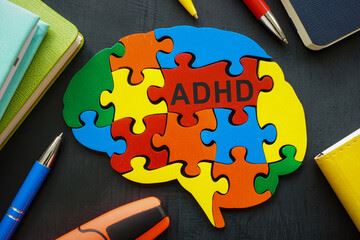
Children diagnosed with Attention-Deficit Hyperactivity Disorder (ADHD) typically display symptoms of inattention, hyperactivity, and impulsivity as well as difficulties in family, social, and academic life. While medication is often the first-line treatment, there is evidence that children with ADHD may also benefit from cognitive behavioral and mindfulness-based interventions (MBIs). However, studies evaluating the efficacy of MBIs for this demographic often suffer from the limitations of small sample sizes, absence of evidence-based comparators, and insufficient long-term follow-up.
Wong et al. [Psychotherapy and Psychosomatics] compared the efficacy of mindfulness-based and cognitive behavioral interventions designed for children with ADHD and their parents in improving children’s attention and well-being while reducing parental stress.
The researchers randomly assigned 138 Cantonese-speaking parent-child pairs, with children aged between 8 and 12 years (average age = 9 years; 72% male) diagnosed with ADHD, to either a MBI or cognitive behavioral intervention. The MBI comprised 8 weekly 90-minute group sessions modeled after Mindfulness-Based Stress Reduction but tailored for school age children. Children and parents met in separate concurrently running groups.
The control intervention involved 8-week cognitive-behavioral groups for the children and psychoeducational groups for the parents. The cognitive behavioral intervention focused on handling problems, improving self-control, understanding emotions, perspective taking, conversational skills, and managing social problems. The parental psychoeducational group reinforced concepts covered in the cognitive behavioral sessions and included discussion and role playing as well as self-care and relaxation skills.
Due to COVID-related lockdowns in Hong Kong, about 6% of the child-parent pairs received most of their training remotely via Zoom.
The primary outcome was children’s selective attention, assessed at baseline, 8 weeks, and 3 and 6 months using the Sky Search subtest of the Test of Everyday Attention. The subtest requires children to circle target spaceships on a sheet filled with distractor items. Secondary outcomes included various aspects of attention, executive function, parent-rated ADHD symptoms and behavioral problems, mindfulness, and well-being, as well as parental stress, rumination, and their own ADHD and well-being.
Results showed that the MBI group had significantly improved selective memory over baseline at six months (d=0.32), while the cognitive behavioral group had significantly improved selective memory over baseline at post-intervention (d=0.27), 3 months (d=0.45), and 6 months (d=0.27). There were no significant differences in selective memory between the two study groups, however. While there were several significant small-to-moderate within-group improvements on other measures of children’s attention, executive function, and behavioral and ADHD symptoms, there were no significant differences between group on any of these variables.
There were no within- or between-group improvements for parental well-being, perhaps reflecting the stress of COVID lockdown periods in China.
The study shows a mindfulness-based and a cognitive-behavioral intervention show the same small-to-moderate improvements in selective attention and behavior in children with ADHD on six-month follow-up, and shows no effect for relative changes in parents of children with ADHD.
The study is limited by the absence of an inactive control comparator that could rule out regression to the mean, repeat testing, or the passage of time.
Reference:
Wong, S. Y. S., Chan, S. K. C., Yip, B. H. K.,... Bögels, S. M. (2023). The Effects of Mindfulness for Youth (MYmind) versus Group Cognitive Behavioral Therapy in Improving Attention and Reducing Behavioral Problems among Children with Attention-Deficit Hyperactivity Disorder and Their Parents: A Randomized Controlled Trial. Psychotherapy and Psychosomatics.
Link to study